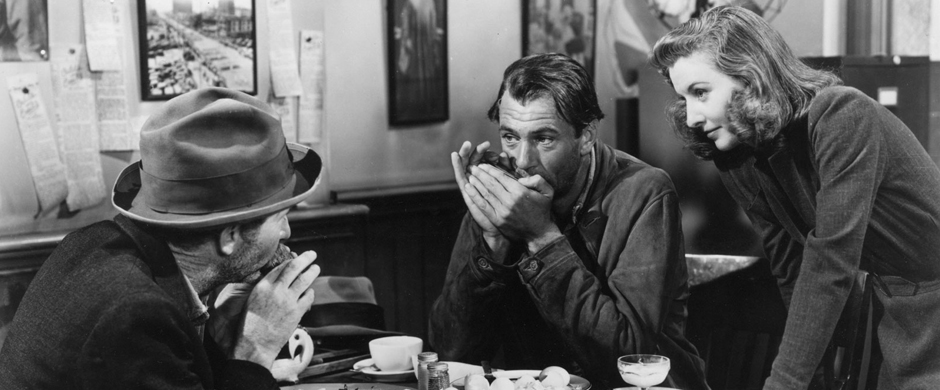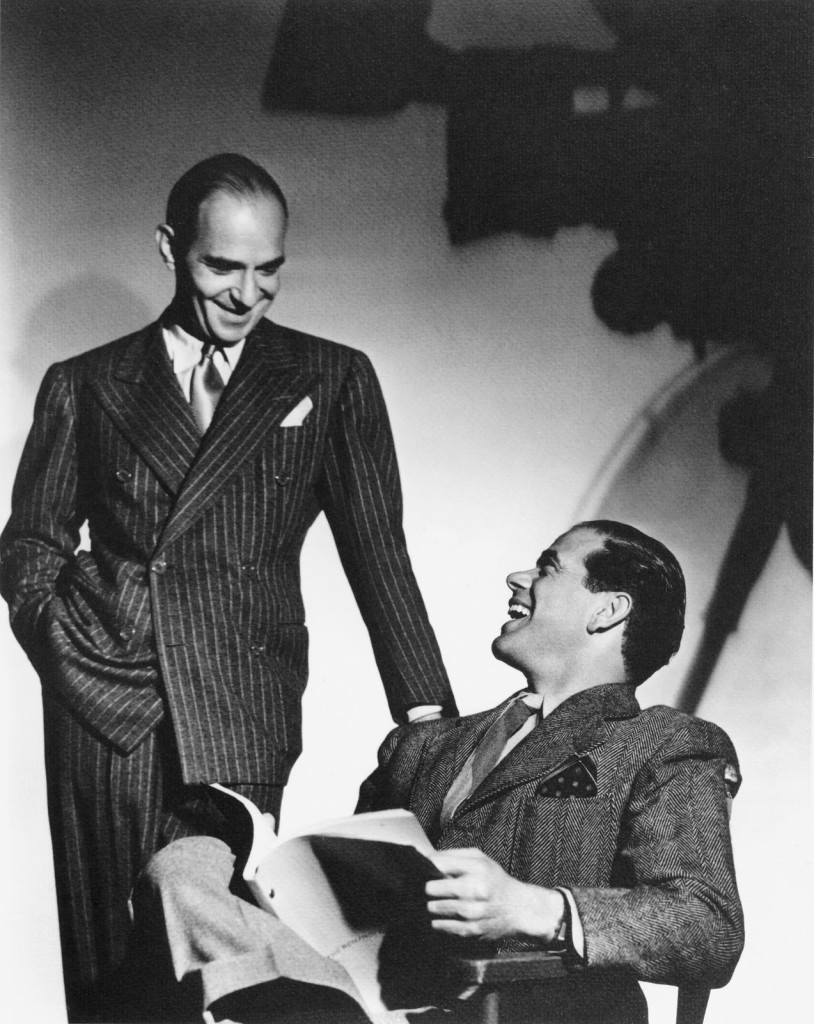Meet John Doe is nothing short of a triumph of Riskin the individual over Capra the institution.

The last day of December demands introspection, and I sense a now all-too-familiar pressure to choose the right words for this end note. The year on the calendar upsets my plans. These plans have now become ‘old plans’; plans that stopped my time a long ago. And to watch Frank Capra now means to freeze this time even further.
Capra’s world is the one of hope—often, the oldest hopes of man. There’s a childlike simplicity that characterizes these men. His women are strong-willed and independent. In this world the greatest villain is self-centeredness. Honesty and kindness come across as something worth striving for, and because you want to believe so. ‘Be nice.’ ‘Be good.’ That seems to be at the heart of his best-known films: It Happened One Night (1934), Mr Deeds Goes to Town (1936), Lost Horizon (1937), Mr Smith Goes to Washington (1939) and Meet John Doe (1941), among others.

Screenwriter Robert Riskin with director Frank Capra
It’s a shocking discovery then: the voice in these films doesn’t belong to its director Frank Capra. This voice that we admire so much belongs to the writer of his films who could sympathize with the underdogs, who sailed the boats for Columbus but never got their due share of credit or recognition. Sadly, his partnership with the writer of his best films, Robert Riskin, can be described as the relationship that D.B. Norton had with John Doe in Meet John Doe.
Even the choice of the title of Frank Capra’s autobiography, The Name Above The Title, clearly propels his reckless attitude. The star director refused to visit the lowly writer who was slowly dying in a hospital. Throughout his life, Capra attempted to shroud the genius of the great scenarist. The truth is that Capra eschewed the funeral of a man whose creative vision and distinct voice was widely mistaken to be Capra’s own. Nothing could be more ironical for the man who reaffirms the Christian doctrine of forgiveness in his works.
Robert Riskin seems to have no problem with accepting the true nature of the director-writer relationship in the studio era. Riskin helped to set up the Screen Writers’ Guild and fought as a screenwriter for the screenwriters, and the fight still continues. Riskin needed Capra as much as Capra needed him, or any writer needs a director unless they are both one. The collaboration, between the man with an idea and the man with the means to sustain it, couldn’t be less lopsided:
JOHN DOEDo you mean to tell me you’d try to kill the John Doe movement if you can’t use it to get what you want?D.B. NORTONYou bet your bottom dollar we would!
Such a reading of Meet John Doe’s text then adds an autobiographical quality, on Riskin’s part, to this last collaboration. And it seems Meet John Doe is nothing short of a triumph of Riskin the individual over Capra the institution. Yet it cannot be denied that the brief marriage between Riskin’s idealism and Capra’s pragmatism was responsible for the birth of some of the finest classics in Hollywood.
In the beginning of the last year or was it the year before that, I left the oblivion of a film that I had co-written to return to the oblivion of advertising. The oblivion grows on you, no matter whether you’re a director-in-the-making or a director who’s made many films. Capra did his best films with Riskin, and Riskin did his with Capra. On the first viewing, a Capra film is a dialog film—hence a Riskin film. It’s all drama, and then when you keep playing back your favorite scenes over and again, you begin to notice the mise-en-scène. Capra clearly knew how to translate the text on to the silver screen, and all so well. Only if he were less ‘mean.’
Postscript from In Capra’s Shadow: The Life and Career of Screenwriter Robert Riskin by Ion Scott:
Jo Swerling, a mutual friend and colleague of Riskin and Capra, and himself a wonderful Hollywood screenwriter, once paced around Riskin’s wheelchair while he was ill, complaining that Capra’s reluctance to visit his old friend was just not right. In the end, however, Riskin lost his temper with Swerling and revealed a deep-seated loyalty to his former partner by dismissing what seemed to be a reasonable claim with the comment, “You’re talking about my best friend.”
Also published on MoiFightClub on Jan 6, 2012